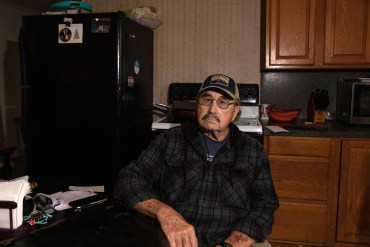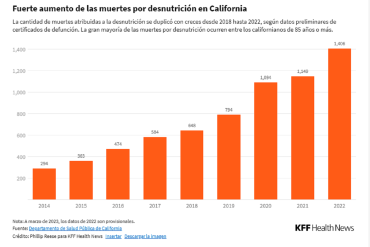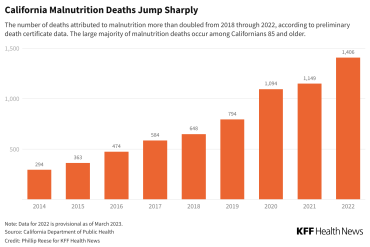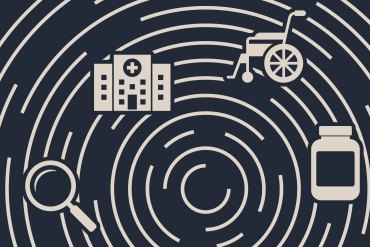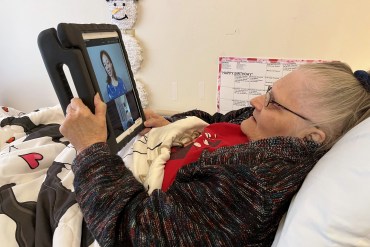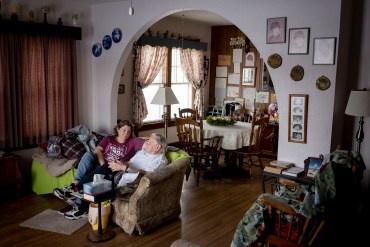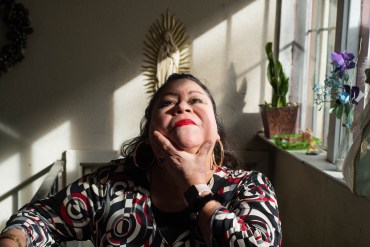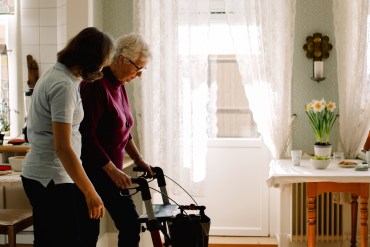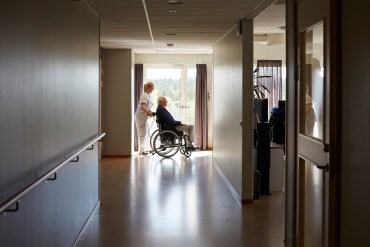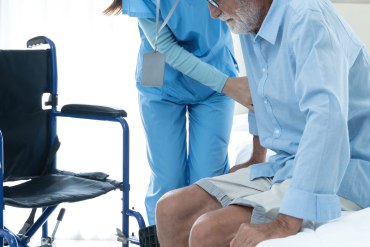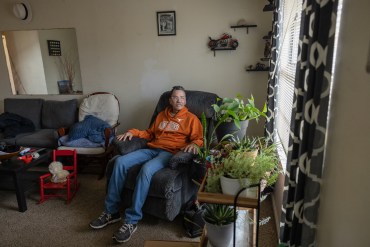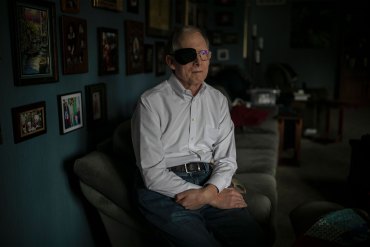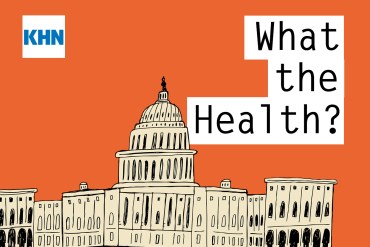How to Grow Your Social Network as You Age
As your circle of close friends shrinks, there are ways to rebuild — but not replace — the social network you had when you were younger.
As US Life Expectancy Falls, Experts Cite the Health Impacts of Incarceration
In a nation with one of the highest incarceration rates in the world, imprisonment speeds the aging process, research shows. Some experts complain the federal government isn’t collecting or releasing data that could identify disease patterns and prevent deaths.
Aumenta el número de californianos mayores que muere por desnutrición
Las muertes atribuidas a la desnutrición aumentaron más del doble, de unas 650 en 2018 a aproximadamente 1,400 en 2022, según datos preliminares de certificados de defunción del Departamento de Salud Pública estatal.
The Rate of Older Californians Dying of Malnutrition Has Accelerated
Californians 85 and older are especially susceptible to malnutrition. They accounted for almost three in five malnutrition deaths in the state last year.
Fatigue Is Common Among Older Adults, and It Has Many Possible Causes
Persistent fatigue — the feeling of having no energy — can contribute to frailty and affects 40% to 74% of older patients with chronic illness. Yet its causes can be elusive.
Being ‘Socially Frail’ Comes With Health Risks for Older Adults
Researchers are identifying new ways to assess older adults’ social circumstances and identify risks that can compromise their health. “It’s a more complete picture of older adults’ circumstances than any one factor alone,” one expert said.
End of Covid Emergency Will Usher in Changes Across the US Health System
The May 11 expiration of the federal government’s pandemic emergency declaration will affect patient care across a broad range of settings, including telemedicine, hospitals, and nursing homes.
Mental Health Care by Video Fills Gaps in Rural Nursing Homes
In-person mental health care is hard to arrange in rural nursing homes, so video chats with faraway professionals are filling the gap.
Seniors With Anxiety Frequently Don’t Get Help. Here’s Why.
Older people often aren’t being screened for anxiety disorders, even though it is a common affliction — one masked by other problems when growing old.
After People on Medicaid Die, Some States Aggressively Seek Repayment From Their Estates
States take drastically different approaches to recovering Medicaid money from deceased participants’ estates. Demands for repayment of Medicaid spending can drain the assets a person leaves behind, depending on where they lived.
California’s Massive Medicaid Program Works for Some, but Fails Many Others
Medi-Cal serves more than one-third of the state’s population — offering a dizzying range of care to a diverse population. In the new “Faces of Medi-Cal” series, California Healthline will assess the program’s strengths and weaknesses through the lives and experiences of its enrollees.
Community Workers Fan Out to Persuade Immigrant Seniors to Get Covered
California has enrolled into Medi-Cal more than 300,000 older immigrant adults lacking legal residency since May, but the state doesn’t know how many more might be eligible. Community workers are now searching for them.
Dementia Care Programs Help, If Caregivers Can Find Them
Programs assisting people with dementia — and their caregivers — improve quality of life and care. But millions of unpaid family and friend caregivers may not know where or how to find help.
Readers and Tweeters Urgently Plea for a Proper ‘Role’ Call in the ER
KHN gives readers a chance to comment on a recent batch of stories.
California Dangles Bonuses for Nursing Homes That Add Staff
Rather than simply reward top-performing facilities, the state’s Medicaid program will hand bonuses to nursing homes — even low-rated ones — for hiring more workers and reducing staff turnover.
Montana Seeks to Insulate Nursing Homes From Future Financial Crises
Lawmakers are considering creating standards to set Medicaid reimbursement rates. But industry observers wonder whether the move would be too little, too late to bolster a beleaguered industry.
Proposed Medicare Advantage Changes Cannot Accurately Be Called ‘Cuts,’ Experts Say
CMS advanced two proposed changes that could affect Medicare Advantage plans. One would allow the government to recover past overpayments. As a result, it could reduce those insurers’ profits, leading them to increase enrollees’ out-of-pocket costs or reduce benefits. But it’s inaccurate to characterize the changes as “cuts.”
A Law Was Meant to Free Sick or Aging Inmates. Instead, Some Are Left to Die in Prison.
The First Step Act was supposed to help free terminally ill and aging federal inmates who pose little or no threat to public safety. But while petitions for compassionate release skyrocketed during the pandemic, judges denied most requests.
When Medicare stops paying for a pricey drug that prolongs life, an Ohio man considers giving up treatment to spare his family enormous debt.
What the Health? From KFF Health News: A Health-Heavy State of the Union
President Joe Biden’s 2023 State of the Union address leaned heavily on health care issues. Biden took a victory lap for recent accomplishments like capping prescription drug costs for seniors on Medicare. He also urged Congress to make permanent the boosted premium subsidies under the Affordable Care Act, and he sparred with Republicans on threats to cut Social Security and Medicare. Also this week, both sides in the abortion debate are bracing for a court decision out of Texas that could, at least temporarily, make the abortion pill mifepristone illegal nationwide. Alice Miranda Ollstein of Politico, Rachel Cohrs of Stat, and Sarah Karlin-Smith of the Pink Sheet join KHN chief Washington correspondent Julie Rovner to discuss these issues and more. Also this week, Rovner interviews Kate Baicker of the University of Chicago about a possible middle ground in the effort to get universal health insurance coverage.




